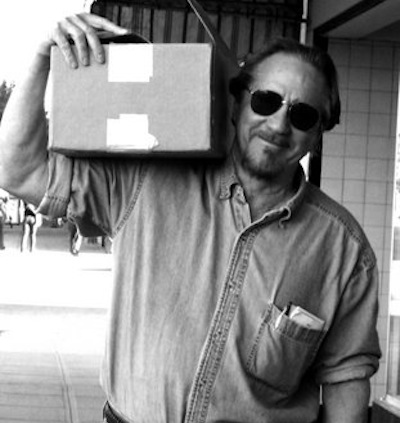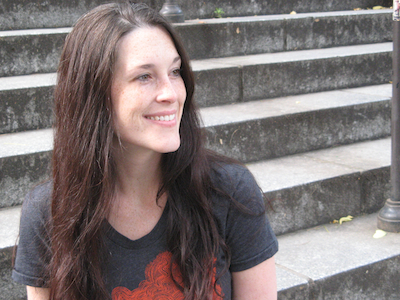An introduction to Duff Brenna, author of nine books including The Book of Mamie, Minnesota Memoirs, and Murdering the Mom. He is a freelance writer and Professor Emeritus of English literature and creative writing at California State University, San Marcos. Brenna finds ideas for his own writing from reading, and also from talking to people: “I know how to listen when I’m with people. Stories often pop out of their mouths that I use to write my own version of what they were saying. I also use my own life.”
Quick Facts on Duff Brenna
- Website: www.duffbrenna.com
- Home: Menifee, California
- Comfort food: smoked salmon
- Top reads: War & Peace by Leo Tolstoy, Anna Karenina by Leo Tolstoy, The Brothers Karamazov by Fyodor Dostoevsky, Huckleberry Finn by Mark Twain, The Call of the Wild by Jack London
- Current reads: Midnight Rumba, a brilliant novel about the fall of Cuba written by Eduardo Santiago.
What are you working on at the moment?
Dying by Inches, the story of a woman whose husband poisoned her over the course of an entire year. Fifteen years after her death, her sister gave me access to files about the case, which contained medical records and the woman’s journal. There wasn’t enough evidence to charge her husband until just recently. Two weeks after I finished the first draft detailing her torturous decline and death, her husband was finally arrested. He goes on trial this fall. I’ll be there to hear the evidence and the verdict. When it’s all over, I’ll be able to finish the last chapter of the book.
What do you hope readers will take away from your work?
The feeling that reading my book was worth their time and made them want to read more of my work.
Where and when do you prefer to write?
Mornings are best. I’m fresher and the cares of the day haven’t yet distracted me. I have a room in my house that is devoted exclusively to reading and writing. After decades of doing this, I’m very disciplined.
Do you listen to anything while you write?
I keep a fan on to provide white noise. It helps me concentrate.
Where would you most want to live and write?
I come from Minnesota. If I had my choice, I’d move back there, buy a house on a lake, and write. I go back every year. It’s the only place where I feel I’m home.
Do you have a philosophy for how or why you write?
“Generally, getting one page done
will lead to two.”
Write everyday if possible. Try to write at the same time as well. Write at least one page, even if it takes four hours. Generally, getting one page done will lead to two. Two will lead to three, etc. It is especially important to stick with your writing routine. If you don’t, the muse will abandon you.
How do you balance content with form? How does the structure of the book influence the story?
Usually, the story will dictate its form eventually, but first you might have to do a lot of writing that doesn’t seem to be going anywhere. Do it anyway. With time and content you’ll find the story inside all those words you put down. Throw everything else out and start over. Also, try several points of view and perhaps change past tense to present tense or vice versa. This will give you different ways of looking at the structure and style. I wrote my last book, a memoir called Murdering the Mom, in first person. When I finished, I wasn’t happy with the point of view, so I started over using second person. Finally, after several drafts, I found myself using both first person and second person depending on what each chapter needed in order makes its point. I worked on that book for nearly ten years, but it was worth the effort.
What do you find most challenging about writing?
“My greatest fear is that someday
I won’t have anything to say
and the page will remain blank.”
The challenge of a blank white page. My greatest fear is that someday I won’t have anything to say and the page will remain blank. It’s the worst nightmare I can imagine.
When you’re having trouble getting started on story, where do you look for inspiration or new ideas?
In books that others have written. I read approximately one novel a week. All good novels are brimming with ideas. I take notes on 3×5 cards and there are times when I’ll find my next story in a phrase or paragraph I wrote on a card. I also keep a journal and mine it for ideas. I know how to listen when I’m with people. Stories often pop out of their mouths that I use to write my own version of what they were saying. I also use my own life. Much of what I write has some biographical inspiration.
How have your goals as a writer changed over time?
I used to think that nothing but fame and fortune would satisfy me, but with time I’ve realized that fame and fortune will probably never happen. Now I’m just grateful for what I have. Nine books, some awards here and there, a small following, a little money coming in from royalties now and then.
Is there a quote about writing that motivates or inspires you?
“No iron can pierce the heart with such force as a period put in just the right place.” -Isaac Babel
What advice would you give to aspiring writers?
Read, read, read. Write, write, write. Don’t be afraid to imitate. Ultimately, imitation will help you find your own voice. Ask yourself this: What would I rather do with my life than become a writer? If you can think of something else you would rather do, stop writing and go do it.”
“If you can think of something else
you would rather do,
stop writing and go do it.”
What’s the best advice you’ve been given as a writer?
When I was in college, my creative writing instructor said, “I don’t know what it is, but whatever it is, you’ve got it.” No one ever said anything more important to me about my potential as a writer. I’ll never forget his remark. It’s kept me going through some really hard times when I kept getting rejections in the mail, so many rejections I lost count. I still get rejections, but they don’t bother me much. Most of what I write gets published now.
Is there something that you wish people would ask about your work more often?
I like questions that stick to the book. Why use this point of view? Why write the story in present tense or past or whatever? When your memoir was published, were you afraid of what others might think about you and your family?
When you’re not writing, what do you like to do?
I travel a lot to do readings and workshops. The only thing I don’t like about it is the traveling itself. Air travel is not what it used to be—an exciting adventure. Now it’s something be endured. If you fly you need to be Stoic.
About Duff Brenna
Duff Brenna is the author of nine books, including The Book of Mamie, which won the AWP Award for Best Novel; The Holy Book of the Beard, named “an underground classic” by The New York Times; Too Cool, a New York Times Noteworthy Book; The Altar of the Body, given the Editors Prize Favorite Book of the Year Award (South Florida Sun-Sentinel) and also received a San Diego Writers Association Award for Best Novel 2002. He is the recipient of a National Endowment for the Arts award, Milwaukee Magazine’s Best Short Story of the Year Award, and a Pushcart Prize Honorable Mention. His book Minnesota Memoirs was awarded Best Short Story Collection at the 2013 Next Generation Indie Awards in New York City. His memoir, Murdering the Mom, was a Finalist for Best Non-Fiction at the same Independent Publishers Awards. Duff’s work has been translated into six languages.
[Toffoli, Marissa B. “Interview With Writer Duff Brenna” Words With Writers (September 13, 2013), https://wordswithwriters.com/2013/09/13/duff-brenna.]




Oh, I love most of his favorite books as well. I’m so impressed by anyone who can publish one book, but nine? Very impressive!